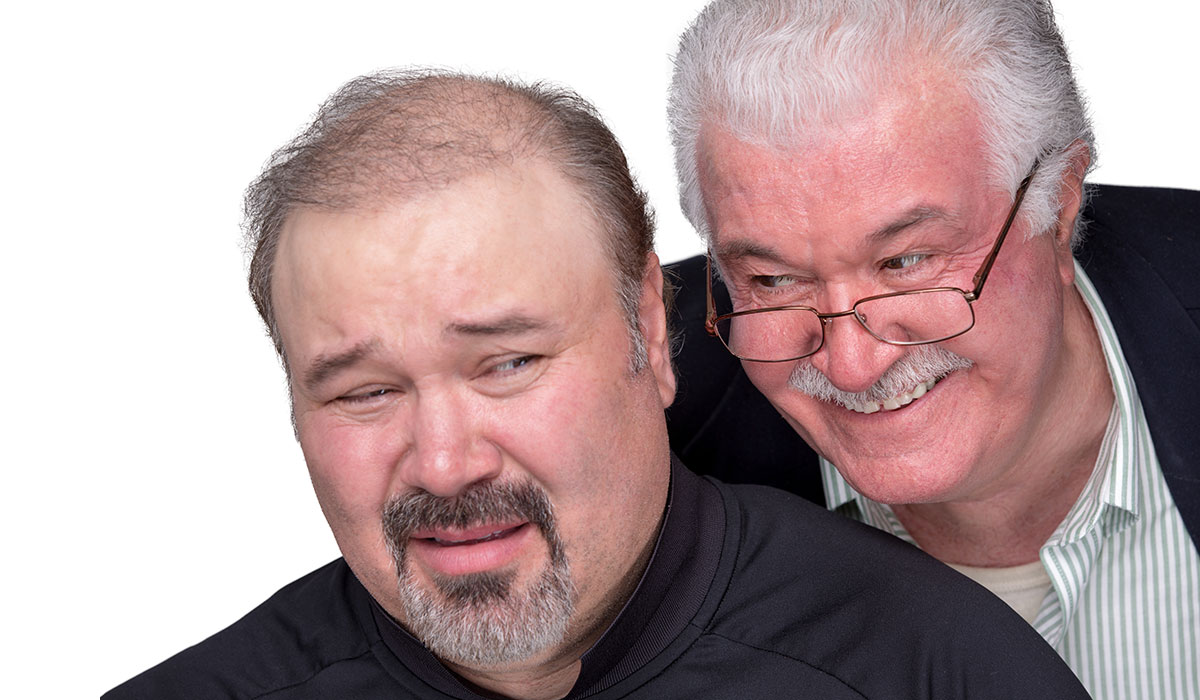 Third in a Series: Things Major Donors Love (or Hate)
Third in a Series: Things Major Donors Love (or Hate)
I had given a decent gift to the organization – not a large one – but enough to qualify for major donor status. I was immediately assigned to a major gift officer. Because I was an involved supporter of this organization I was in their offices in Washington, D.C. and the MGO came over to see me. Here is the conversation we had:
- MGO: “Oh hi, Richard, it is so good to see you. I’m NAME, the person here at ORGANIZATION who will be working with you to answer any questions you might have. Thank you so much for all you’re doing! We really appreciate it. By the way, I will be in Seattle next month and was wondering if I could stop by and see you?”
Richard: “Good to meet you NAME. And thanks for being my contact here at ORGANIZATION. As far as coming by to see me, I don’t think that’s necessary. As you know, I’ve been a supporter of the organization for many years and I know the programs and you know my area of interest. I don’t think it would be useful to stop in and see me as I am already on board. Spend your time, instead, with other donors in the Seattle area. I think that would be a better use of your time. Plus, I am more of an email guy – so anything you want to communicate to me would be better received if you email me. And then, if I want to engage, I will let you know.”
MGO: “OK, but maybe if I have time, I will just stop by to say hello.”
Richard: “Like I said, there is no need to do that. Good to meet you.”
Now, I think that’s pretty clear, don’t you? I told the MGO my communication preference. I told her I was on board. I told her how to get me more engaged. And I specifically told her what NOT to do. So what happened? Here’s the play by play three weeks later:
- Receptionist at my company: “Hi, Richard. There’s a NAME OF MGO here who just stopped by and wants to see you.”
Richard: (Frustrated) “OK, I’ll be right out.” I go out to the reception area to greet the MGO and we stand in the lobby.
Richard: “Hi, NAME. It was nice of you to stop by, but I thought I was pretty clear that wasn’t necessary. Do you remember the conversation we had back in D.C. just three weeks ago?”
MGO: “Yes, but I was just in the area and thought I would just stop in for a second to say hello. I hope that’s OK.”
Richard: “Well, actually it isn’t, NAME. I specifically told you my preferences and my desires and you ignored them. I don’t want to be rude. But I am frustrated that you didn’t listen to me and just went ahead and came to my office and interrupted my day when I asked you not to do that. This doesn’t help you or your cause, NAME. You cannot just push yourself onto donors. You must respect their space and privacy or you’ll lose them. Please use your time to visit with donors who want to talk to you in person.”
And I ended the conversation as best as I could. Plus, I called the MGO’s manager and reported the incident to him. The MGO continued in her employment and I can only imagine what happened in the months ahead.
Here’s the thing. (Jeff and I have repeated this over and over again in our blog posts.) A respectful relationship with your donor starts with you knowing their interests and passions and then serving those interests in passions in the manner the donor directs.
- Serving the donor’s passions and interests.
- In the manner the donor directs.
There’s never any excuse to do this any other way. And if you’re truly serving the donor’s passions and interests – truly – then the donor will want to engage, will want to see you, and will welcome your presence. This is how it works.
It’s so fascinating to me how many major gift gurus out in the marketplace can spend so much time teaching moves management and how to use just the right words to motivate the donor to act; yet they spend so little time helping good MGOs learn the basics of HOW the transaction works relationally – that it starts with the deep need of a donor to do good on the planet and ends with the MGO showing the donor how that deep need can be fulfilled through a gift.
If you do all of that right, your donor will welcome you as a partner rather than view you as a bother. And that is a valuable place to be.
Richard
Read the series “Things Major Donors Love (or Hate)”
- Major Donors Love Transparency
- Major Donors Love When You Tell It Straight (not Manipulate)
- Respecting Donors’ Space and Time (Don’t Bother Them) [This Post]
- Major Donors Love being Thanked and Appreciated
- Donors Love to Achieve Impact (Don’t Waste Their Money!)






You are right, but this forgets another dynamic – the management. The MGO may be receiving pressure from the supervisor, or the department’s policy may be requiring a personal interaction. The attitude from management certainly influences action. Perhaps rethinking by management also needs to be done.
I came here to say what Michael Looby did.
There is often a push to meet a quota of meaningful contacts, visits, etc. whereby MGOs find themselves stuck between staying in their manager’s good graces and knowing that a donor wants arm’s length communication. In this situation, one sees their boss (even virtually) much more often than the donor, so one will probably bend to their boss’s demands. (Not to mention that the manager holds a lot of power in a MGO remaining employed.)
Over the years, I know I’ve been pushed to “take another crack” at a donor that I KNOW doesn’t want to meet.
You both are right. I should have added that nuance as it is often management that is pushing the MGO to engage in behavior that is counter-productive. I realize now that I was thinking that as I wrote this piece and had lumped the MGO and managers all in one vs. placing responsibility on the manager to act properly with donors. Thanks for pointing this out.